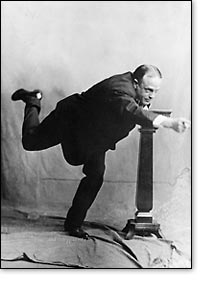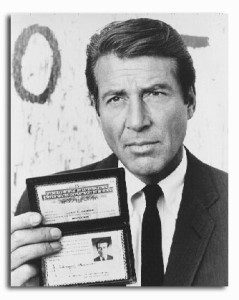For Corporate Counsel || Stalking Horses, Pitchfork Crowds, Narrow Neckties, Mr. Rogers’s Slippers and Indicted Employees: 6 Steps To Dodge Being Deweyed
Reading Time: 8 minutes.

You may (or may not) recall the Boy Scout Law:
“A Scout is trustworthy, loyal, helpful, friendly, courteous, kind, obedient, cheerful, friendly, brave, clean and reverent.”
Your corporate employees, officers and colleagues may exhibit all, some or none of those characteristics. Even if one masters all the peculiars of the Boy Scout Law, however, strict adherence is no shield against indictment in the situation where one moves from “witness” to “target” for reasons outside the control of the “Scout.”
So: herewith 6 lessons to heed if you wish to avoid ending up like a young man named Zachary Warren.

It is unusual for the government to indict leaders of a major law firm, as the Manhattan District Attorney’s office indicted three of the leaders of the now very-defunct Dewey & LeBoeuf. What has caused the most discussion, controversy and even introspection is the indictment of a fourth defendant, one Zachary Warren, a 29 year-old “client relations manager” — apparently, a glorified internal bill collector with a distinguished resume, both before and after Dewey.
What can inside counsel, or those who advise them, learn from the path that led these four men — but young Mr. Warren, in particular — to being charged and perp-walked? More remains to be told of this tale: as in all such white-collar sagas, there are likely at least two sides to every side. I do not know Mr. Warren, nor do I have any special insight into what he, the investigating agents and the prosecutors were or might have been thinking.
Nevertheless, I can at least provide six lessons on how to minimize the likelihood that you — inside corporate counsel, risk manager or chief compliance officer — will have to explain to the boss or the board how your own Mr. or Ms. Warren got himself in a criminal fix.
Some background is unavoidable. The best places to start are an article by James B. Stewart in the New York Times (A Dragnet at Dewey & LeBoeuf Snares a Minnow); an Atlantic article by Stewart (In Dewey’s Wreckage, Indictments); and a post by David Lat at Above The Law (What Dewey Know About Zachary Warren, Defendant No. 4 In The Criminal Case?). Read the articles in full, but here are some relevant portions:
From James B. Stewart in the Times:
“You’ve been indicted,” an assistant Manhattan district attorney, Peirce Moser, told Zachary Warren, a 29-year-old magna cum laude graduate of Georgetown Law School with a prestigious clerkship on the Federal Court of Appeals for the Sixth Circuit in Memphis.
“Can you say that again?” a stunned Mr. Warren asked when he received the call two weeks ago Friday.
Almost as surprised as Mr. Warren himself were Mr. Warren’s cellmates before his arraignment a week ago — the top managers of Dewey & LeBoeuf, the global law firm that imploded in 2012. Although some of them had trouble remembering who Mr. Warren was, the indictment claims that all four were co-conspirators in a major accounting fraud. The firm’s chairman, executive director and chief financial officer, ages 60, 57 and 55, had long known that they were the subjects of a criminal investigation. All had prominent criminal lawyers, while Mr. Warren had hired a lawyer only after the phone call that Friday.
Alone among the defendants, Mr. Warren was charged in two separate indictments, one accusing him of a “scheme to defraud” and falsifying business records and the other charging him with six felony counts of having “made and caused” false entries in books and records. Mr. Warren pleaded not guilty and was released on $200,000 bail. His once-bright future has now been threatened.
How did a 29-year-old with an impeccable record, someone who had never even taken an accounting course, end up as an accused mastermind of what the Manhattan district attorney, Cyrus Vance Jr., called “a massive effort to cook the books” of the once-giant law firm? And how did he get there without realizing he should hire a lawyer?
From Mr. Lat:
I fall somewhere in between the extremes of “naive youngster ambushed by the DA’s office” and “arrogant lawyer full of hubris.” Here’s my theory as to why Zachary Warren didn’t bring a lawyer with him to the interview: he didn’t see himself as one of “those people,” i.e., a potential criminal defendant.

Lesson Number 1: Recognize that the danger is not innocence or naivete on the one hand, nor guilt or arrogance on the other, but rather the conviction that “I” am not one of them.
What’s the tag line of the blog you’re reading? Don’t read us because you’re a criminal. Read us because, some time or other, someone may think you are. In his Above The Law post, Mr. Lat alludes to the problem, which is perhaps the most common trait among people charged with white-collar offenses. No employee, colleague, officer or director thinks that he or she is a criminal. Ready to do what you have to do for your family and future? Absolutely. Willing to throw an elbow? When needed, sure. Holding your nose through something unethical? Well, there was that one time, back in 1990.
But something criminal? Nope. No way. Criminals are people who break the law. They steal stuff and hurt people.

The task that arises from lesson number 1 is to convince those you are guiding that their assessment of their culpability (or lack of culpability) is irrelevant to how agents, investigators, prosecutors, regulators and politicians will view their culpability. Indeed, some of the facts that your employee trumpets as an emblem of innocence may, in the government’s eyes — or “Eye,” if you’re a Lord of the Rings fan — be just as likely a badge of fraud.
Lesson Number 2: The civil case is always a stalking horse for the criminal case.

Of course, “always” is not “always,” but it is often enough to make it reliable. If a person believes he or she is part of a civil inquiry only, he or she will conclude — wrongly — that the exposure is limited. An employee or officer being interviewed by law enforcement or prosecutors should assume that there is a shadow criminal investigation and that he or she is at least a “subject” of that investigation.

Lesson Number 3: The company’s civil case and the individual officer or employee’s criminal case are on two different planets because of the current pitchfork mentality about putting “somebody” in jail.
Corporations are not natural persons and cannot be imprisoned. When very bad things happen, the natural impulse is to determine (or shift) blame. The fruit of that impulse is to hope someone goes to jail — even where the civil and criminal standards are different; where “knowledge” and “intent” must be discerned differently; and where the rules of evidence and Constitutional principles apply to individuals in ways that differ from the manner in which they apply to corporate entities. Judges are not immune from such sentiments, as where a federal judge publicly urges the Department of Justice to prosecute individuals:
U.S. District Judge William H. Pauley approved the auto maker’s settlement with prosecutors Thursday, saying it “painted a reprehensible picture of corporate misconduct.” But he added that ultimately individuals are responsible for corporate misconduct and urged the Manhattan U.S. attorney’s office, which conducted the investigation into Toyota, to continue its probe.
“I sincerely hope that this is not the end but rather the beginning to seek to hold those individuals responsible for making these decisions accountable,” Judge Pauley said during a roughly 20-minute hearing in Manhattan federal court.
When asked if prosecutors would pursue individuals during a news conference Wednesday, Manhattan U.S. Attorney Preet Bharara said he wasn’t “foreclosing anything” but believed the settlement is the “final resolution” of the case.
“[T]he rules of evidence sometimes do not allow you to use certain kinds of evidence and certain documents against individuals, although they might be admissible against the company itself,” said Mr. Bharara. “And so although there is an admission that there were individuals who engaged in conduct which provides for a basis to bring a case against the company, they are not charged here.”
The comments add to a growing chorus from judges who have criticized prosecutors for settling claims of wrongdoing with companies while not bringing charges against executives or others who actually made the decisions.
Lesson Number 4: Government agents and investigators lie to you. They deceive you all the time; it is ethical for them to do so; and there is little you can do about it.
Many employees think that, in general, law-enforcement agents do not lie (or, at least, that law-enforcement agents do like lie to people like them).

Surprisingly large numbers of otherwise savvy, well-educated people profess shock and dismay when they find out that an agent has misled them, told them an untruth or left out an important fact that might have changed their answer to a question.
However heartfelt, such dismay is misplaced. Much of what we expect law-enforcement to do — especially with regard to undercover operations, searches-and-seizures and interrogations — is premised on not being forthcoming. Like any other witness, an FBI agent or a sheriff’s deputy must testify truthfully in court proceedings, and is subject to perjury and other sanctions if he or she fails to do so. By the time we reach that stage of an investigation and prosecution, however, our employee or colleague has already spoken with the agents out of a desire to cooperate; from fear of being perceived as not cooperating; or from embarrassment at being associated with particular events, even by implication.
This compulsion to speak leads us to the next lesson: avoid the Efrem Zimbalist, Jr. Syndrome.
Lesson Number 5: Teach your employees and colleagues to avoid the Efrem Zimbalist, Jr. Syndrome.

I’ve spoken before on why businesspeople talk to agents without having their lawyer or the company lawyer present. I call it the “Efrem Zimbalist, Jr. Syndrome,” named after the star of the old television series The FBI. Watch this 140-second video on the Efrem Zimbalist, Jr. Syndrome, then keep reading.
(An aside: I’ve written before on the relationship between crime and narrow neckties: Criminals In Ties: Contract Law and Reservoir Dogs)
Lesson Number 6: Tell the truth in response to questions you understand, and demand a new question if you don’t understand the old one, but don’t put on Fred Rogers’s slippers.
If your employee or colleague decides to cooperate in an investigation, they need to meditate on the old chestnut “in for a penny, in for a pound.” Lying is the quickest path to indictment. In complicated, expensive, protracted business-crime or regulatory investigations, false-statement or obstruction charges are easier and cheaper to prove that the underlying, substantive conduct. And, judges and juries jump to conclusions about liars and document-shredders.

On the other hand, answering “truthfully” does not mean answering “cuddly.” Assume that the agent knows the answer (or has a decent guess about the answer, or has a preconceived notion about the answer) to every question that he or she poses. Further, assume that each question, and therefore each answer, is at best a “neutral” event from the perspective of the person being questioned.
Good luck.